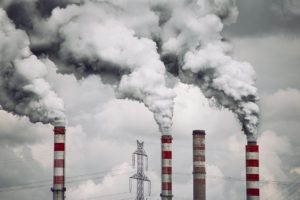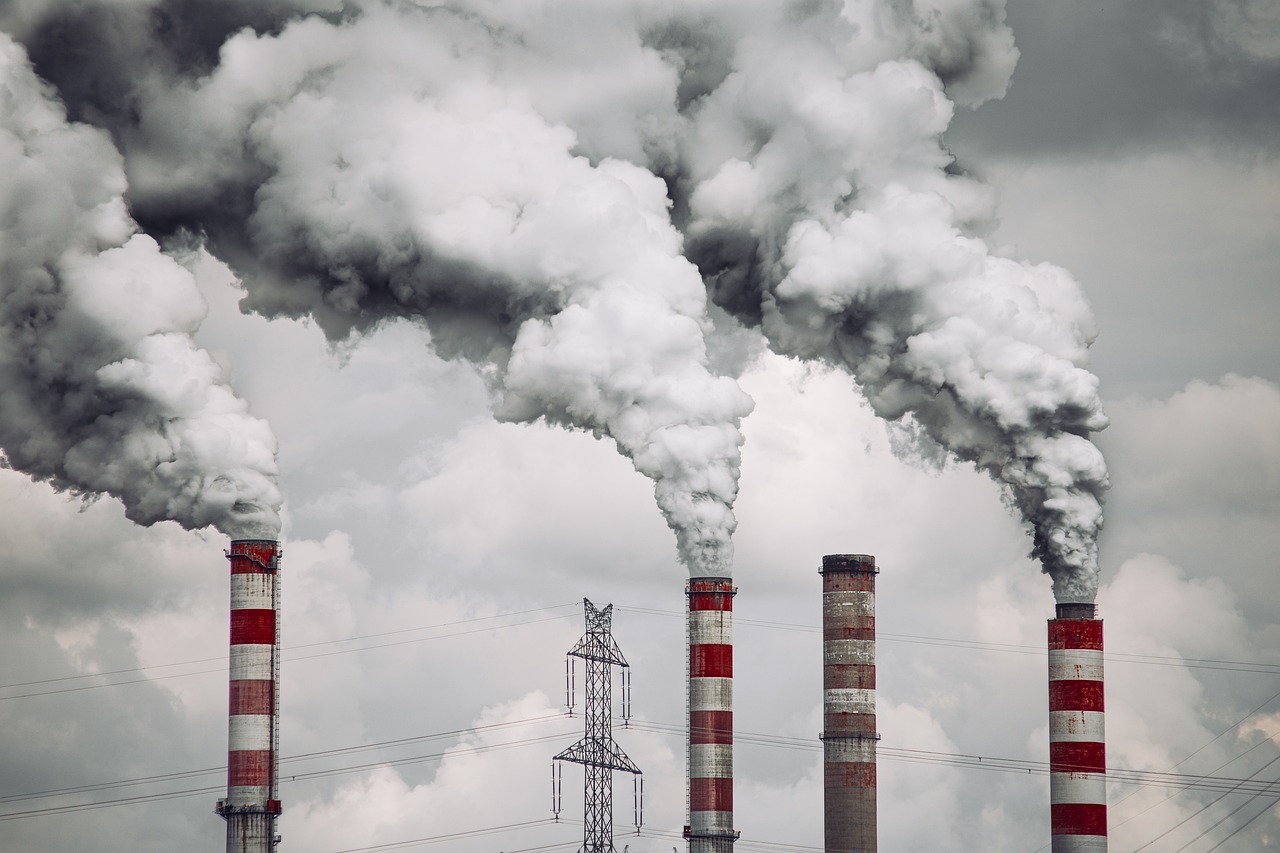
The court decision paves the way for groups to contest harmful environmental decisions by invoking the constitutional rights of their members.
Thursday, July 18, 2024, Harrisburg, PA — Today, the Supreme Court of Pennsylvania recognized the fundamental right of PennFuture, Clean Air Council, Sierra Club, and Environmental Defense Fund and their members to defend Pennsylvania’s participation in the Regional Greenhouse Gas Initiative (RGGI), by overturning the Commonwealth Court’s June 28, 2022 denial of intervention.
Participation in RGGI would benefit Pennsylvanians and our economy by lowering carbon emissions, reducing air pollution, saving consumers money, and creating clean energy investment and family-sustaining jobs.
At issue was whether the environmental nonprofit organizations could intervene and become parties to defend the RGGI Regulation in several challenges before the Commonwealth Court. The nonprofits sought, among other things, to protect their members constitutional rights to a clean and healthy environment under Article I, section 27 of Pennsylvania’s constitution, often called the “Environmental Rights Amendment.” The Commonwealth Court had believedfound that Pennsylvania Department of Environmental Protection (DEP) “adequately represented” the nonprofit organizations’ interests in this case and denied the organizations’ application to participate as parties in the RGGI litigation.
The Supreme Court disagreed. The Supreme Court wrote that environmental groups’ “significant evidentiary presentation demonstrating environmental, health, and quality-of-life harms to their individual members established [a substantial, direct, and immediate] interest.” The majority noted: “At stake for these individuals is not just fidelity to the law but the quality of their lives.”
As they had previewed at oral argument in May 2023, the Court was critical of DEP’s failure to raise the Environmental Rights Amendment, and its obligations as a trustee of public natural resources: “The lower court’s analysis of the adequate representation question unreasonably omits the fact DEP has never once invoked the ERA in support of the RGGI Regulation . . . Although DEP raised other arguments in support of the RGGI Regulation, it made none whatsoever premised upon the ERA. Nonprofits sought intervention, inter alia, to fill this void and defend the RGGI Regulation under the ERA…Nonprofits’ ERA defense is hardly “irrelevant” to this case.”
“Today’s decision shows that the Pennsylvania Supreme Court not only recognizes Pennsylvanians’ constitutional right to clean air and a healthy, stable environment, but respects their right to fight for it. The significance of this recognition cannot be overstated,” said Jessica O’Neill, PennFuture’s Managing Attorney for Litigation. “The RGGI Regulation is a critical step for Pennsylvania to protect the air and environment for Pennsylvanians today and for our future generations. PennFuture looks forward to continuing our defense of RGGI and enforcing our members’ constitutional rights.”
“The RGGI Regulation is the most important step Pennsylvania has taken to-date to fight the deepening climate crisis, which makes the Court’s decision to allow public interest voices to defend the Regulation all the more important,” said Alex Bomstein, Executive Director of Clean Air Council. “As we live through more deadly heat waves, polluted air, and extreme weather, our need for the climate and health benefits of the RGGI Regulation couldn’t be starker.”
“We are very pleased with the Court’s decision, which affirms that our members have a keen interest in defending their constitutional right to a clean and healthy environment,” said Tom Schuster, Director of the Sierra Club Pennsylvania Chapter. “This ruling underscores the importance of our Environmental Rights Amendment, particularly as it relates to protections against climate disruption, the defining environmental issue of our time.”
“Today, the Pennsylvania Supreme Court rightly recognized what is at stake for Pennsylvanians and the importance of their constitutional right to clean air and a healthy environment,” says Edwin LaMair, Attorney, Environmental Defense Fund. “We look forward to continuing to provide a robust defense of Pennsylvania’s program, which will substantially cut pollution from power plants and protect communities.”
The decision also dismissed as moot the environmental groups’ appeal of the preliminary injunction of the RGGI rule, since a permanent injunction stopping the RGGI Regulation from going into effect was granted by the Commonwealth Court on November 1, 2023. The appeals of the permanent injunction are presently before the PA Supreme Court, with briefs to be filed this summer. The Supreme Court is expected to rule on the merits of this challenge after briefing has been completed.
Opinions in full:

HARRISBURG, PA (November 22, 2023) On November 21, Governor Shapiro announced his decision to appeal the November 1 Commonwealth Court decision that declared the Regional Greenhouse Gas Initiative (RGGI) to be unconstitutional.
RGGI is a program established in 2005 that requires regulated power plants to acquire allowances for the carbon emissions they produce. Within the currently-participating states, RGGI reduces emissions from fossil fuel power plants and funds climate change initiatives with the collected fees. Proceeds from the program in Pennsylvania would go to the state’s Clean Air Fund, which can then be put towards efforts that reduce air pollution. By not implementing RGGI, Pennsylvania has already missed out on over $1 billion dollars in RGGI proceeds since January 2022 that would have gone towards air pollution reduction programs.
Executive Director and Chief Counsel, Joseph Otis Minott, Esq. issued the following statement:
“As the nation’s fourth largest emitter of carbon dioxide, Pennsylvania needs RGGI, an effective cap-and-invest program, to advance a commonsense energy plan that cuts climate pollution and ensures an equitable energy transition and the jobs that come with it. The Governor’s appeal gives us a crucial chance to participate in this program and secure a clean energy economy for Pennsylvania. The Governor’s diverse RGGI stakeholder group reached the consensus that such a cap and trade program for the power sector would be critical for generating the funds needed to support the state’s clean energy transition. RGGI is the clear choice for meeting the working group’s goals and Governor Shapiro’s criteria of supporting climate action, clean energy job creation, public health protection, and energy affordability.”

HARRISBURG, PA (July 8, 2022) – Today, the Commonwealth Court of Pennsylvania granted a preliminary injunction halting the carbon budget and trading rule that allows Pennsylvania to participate in the Regional Greenhouse Gas Initiative, or RGGI. This cap-and-invest system would reduce carbon pollution from Pennsylvania’s power plants by up to 227 million tons by 2030, according to the Department of Environmental Protection, as well as add $2 billion to our Gross Domestic Product and 30,000 jobs to our economy. This delay threatens to derail critically-needed investment to address climate change and reduce air pollution across the state.
The following reaction is from PennFuture Senior Attorney Jessica O’Neill, lead attorney for PennFuture, Clean Air Council, Sierra Club, Environmental Defense Fund, and Natural Resources Defense Council:
“While only temporary, the court’s decision is yet another roadblock and stalling tactic from RGGI opponents.The impact that RGGI will have on the health, safety, and welfare of our members, our climate, and our environment cannot be overstated. Simply put, RGGI will save lives, create jobs, and lower Pennsylvania’s carbon footprint at a time when we need it most.
“We expect the Department of Environmental Protection to appeal today’s ruling, which means the Supreme Court will have the opportunity to reinstate the RGGI rule. It doesn’t stop here – we will continue to fight. We eagerly anticipate our next opportunity to defend this rule, which will unquestionably save lives by improving air quality and is necessary to cut Pennsylvania’s significant carbon footprint from the power sector.”
On June 28, the Commonwealth Court also denied the environmental groups’ request to intervene in the lawsuits. Ms. O’Neill, on behalf of the organizations, issued the following statement regarding the denial of their intervention in these critical cases:
“By denying our organizations the ability to participate in RGGI litigation, our important environmental interests have been improperly ignored by the Commonwealth Court. We have been working for years to advance necessary regulations to reduce carbon emissions in Pennsylvania, and RGGI is a critical component to reach our goal of net-zero carbon emissions by 2050. We are exploring all options in relation to the denial of our right to participate in these matters and will continue to fight for Pennsylvania’s carbon budget and trade rule and for our constitutional right to clean air.”
The legal challenges to Pennsylvania’s RGGI rule still remain before the Commonwealth Court in McDonnell v. PA Legis. Review Bd. (41 MD 2022) and Bowfin, et al. v. PA Dept. of Envir. Protection (247 MD 2022).

